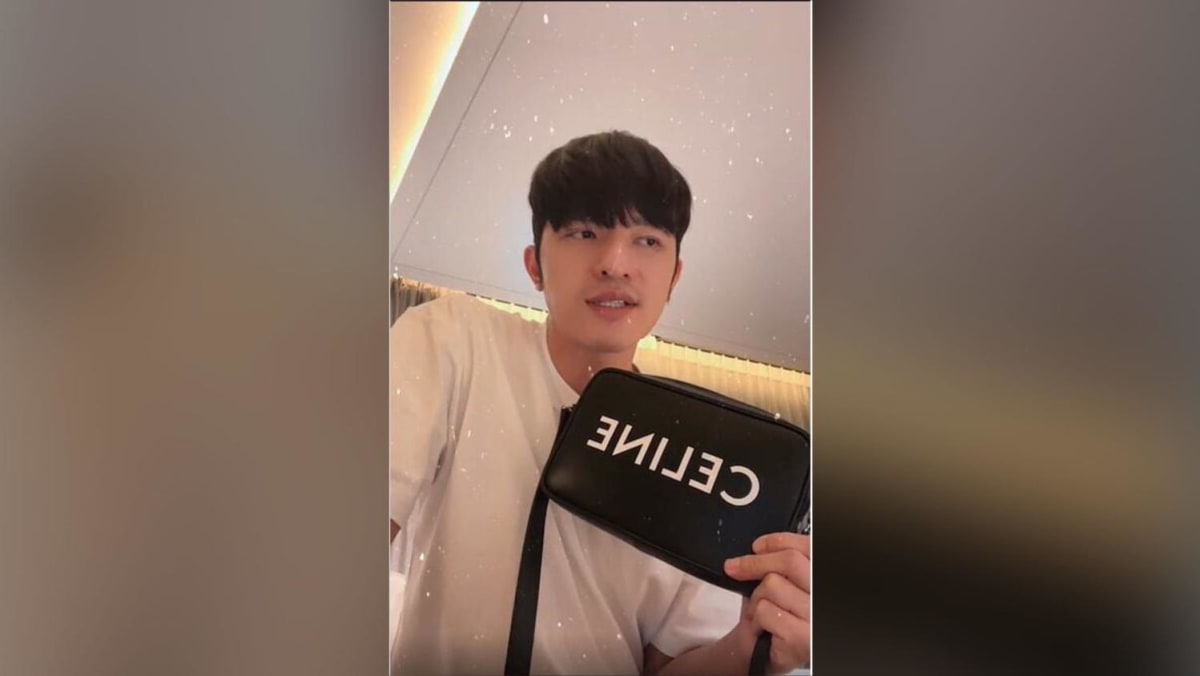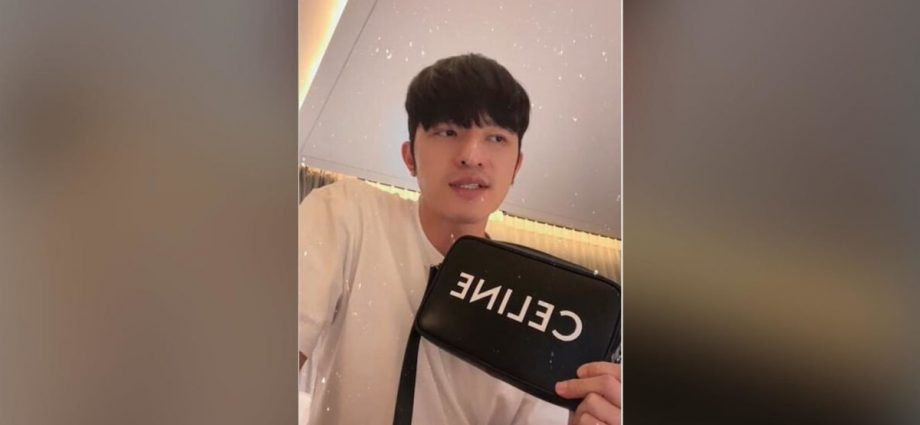
SINGAPORE: The Singapore Customs on Tuesday (Oct 25) said it assesses “the specifics of each case”, in response to a Taiwanese celebrity’s claims that he was stopped at Changi Airport and asked to pay a tax for his used luxury bag.
Make-up artist Xiao Kai, whose real name is Chang Ching-kai, posted a live video on the Instagram platform last week, sharing an encounter with Singapore’s customs officers when he arrived at Changi Airport.
In the video, which has since been deleted, he alleged in Mandarin that the officers told him he had to pay taxes for a Celine bag in his possession.
Xiao Kai said he was taken to a “small room” and asked to show a receipt for the luxury product, which he was unable to because he purchased it in Taipei in September.
He claimed the officers were mocking and did not believe he was a make-up artist.
“They made me feel like I was carrying drugs or smuggling gold or diamonds,” he said.
Xiao Kai said the officers informed him that the bag was considered new as it was purchased in the last three months.
He ended up paying a tax of 7 per cent of its sale price, which he said was about NT$50,000 (S$2,205).
On Tuesday, the Singapore Customs told CNA it was aware of Xiao Kai’s Instagram post on his “unpleasant experience with the authorities at the airport over the payment of Goods and Services Tax (GST) for a bag he brought into Singapore”.
In response to queries, a spokesperson said that under Singapore’s laws, arriving travellers, whether foreigners or returning residents, are required to declare and pay GST to bring in new goods exceeding their GST relief.
“This is applicable whether the goods were purchased overseas or whether foreign taxes were paid,” the spokesperson added.
He added that this practice was consistent with other countries that also levy GST on goods such as souvenirs and gifts purchased overseas and meant for the traveller’s personal use.
For used personal items such as used clothing, shoes, bags and toiletries, travellers are not required to declare and pay GST on them, said the Customs spokesperson.
This is because such items are treated as used articles and personal belongings for which GST exemption is granted under the law.
“However, our officers at the checkpoint will assess the specifics of each case, such as the condition of the goods presented, to ascertain whether the goods are liable for GST payment,” the spokesperson added.
Singapore Customs said they have contacted Xiao Kai to understand the circumstances of his case.

